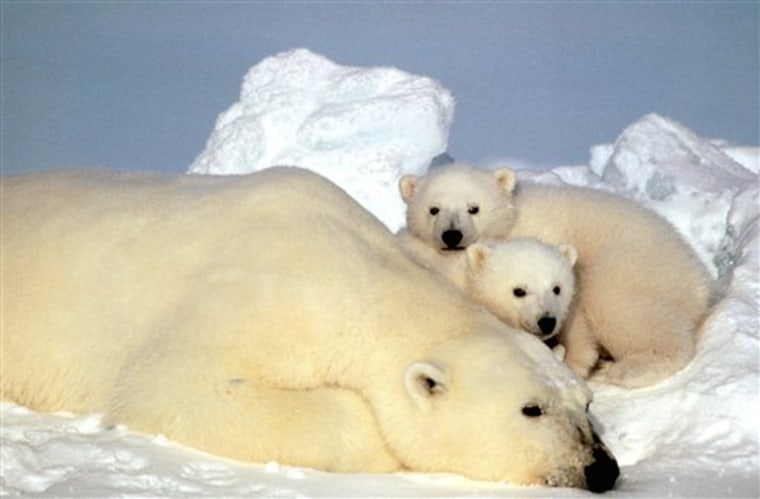Federal officials said Monday that they will need a few more weeks to decide whether polar bears need protection under the Endangered Species Act because of global warming.
The deadline was Wednesday, but the U.S. Fish and Wildlife Service said it now hopes to provide a recommendation to Interior Secretary Dirk Kempthorne in time for a decision by him within the next month.
The department has never declared a species threatened or endangered because of climate change, said Dale Hall, director of the Fish and Wildlife Service.
"That’s why this one has been so taxing and challenging to us," he said.
Environmental groups that petitioned to protect polar bears, arguing that warming threatened their habitat, said they would go court Wednesday to ensure a timely decision.
"We certainly hope that the polar bear will be listed within the next month," said Kassie Siegel, an attorney for the Center for Biological Diversity.
Listing polar bears as "threatened" with extinction could trigger limits on development that adversely affects the animals. That listing is a step below "endangered," the most severe classification under the Endangered Species Act.
Kempthorne proposed the "threatened" listing for polar bears in January 2007, and under the Endangered Species Act that gave him a deadline of exactly one year for a final decision. Among other things, the yearlong period includes opportunity for the public to comment on the proposed listing.
The Fish and Wildlife Service said it needed more time to review the "numerous comments" received from the public.
The Center for Biological Diversity noted that more than 500,000 comments in favor of listing the polar bears were received, the highest ever for a listing, but that the Bush administration has had three years to act.
The group, along with Greenpeace and the Natural Resources Defense Council, had filed a petition in 2005 claiming that global warming was eroding sea ice, the polar bear's primary habitat.
“The polar bear needs a lifeline,” Andrew Wetzler, director of the NRDC's endangered species project, said in a statement. “Urgent action is required by our government. Polar bears’ very existence is already threatened by environmental disaster, and they also face toxic contamination and habitat destruction from oil and gas development. The administration's endless delay is outrageous and unwarranted.”
In September, the U.S. Geological Survey issued a report concluding that two-thirds of the world's polar bears, including the entire population in Alaska, will be killed off by 2050 because of thinning sea ice from global warming in the Arctic.
